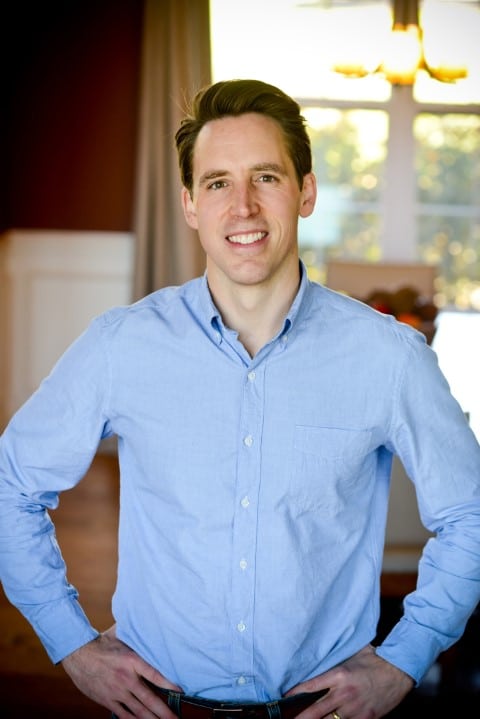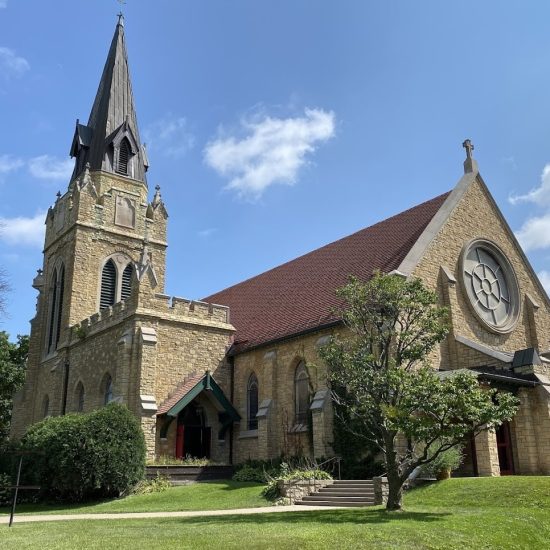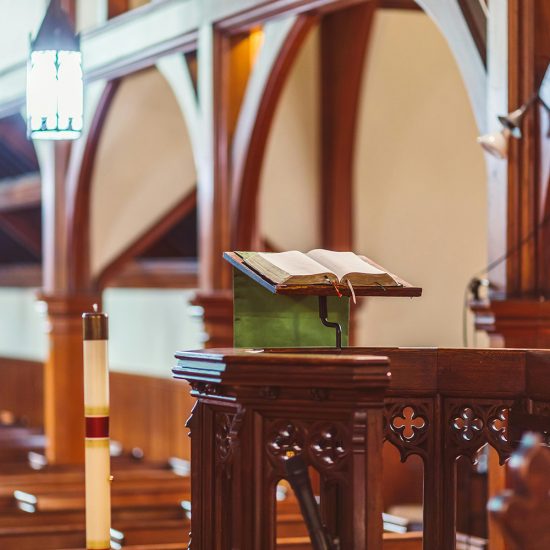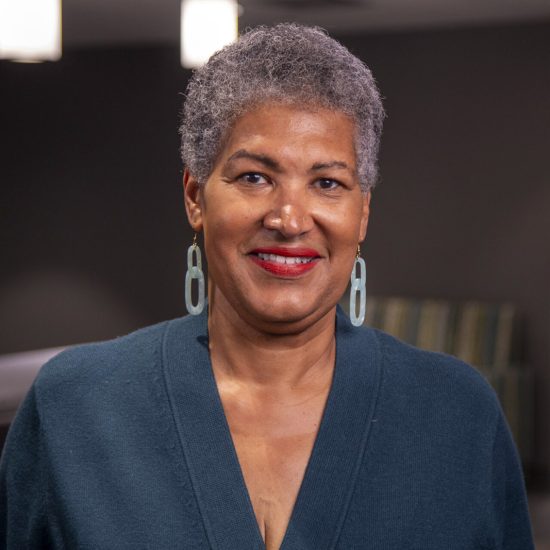Republican Senate hopeful Josh Hawley was scheduled, as of press time, to speak during chapel at Hannibal-LaGrange University, a Baptist school in Hannibal, Mo., on Oct. 3 and in doing so might help the school break the political activity ban (also often called “the Johnson Amendment”) that Hawley wants to repeal. Students are required to attend the event with Hawley one month before the election — with his opponent not given a similar invitation. According to the HLGU student handbook, “chapel attendance is required for all full-time, main campus students.”
 Josh HawleyHawley told a group of conservative pastors in August that he believed the political action ban is “absolutely unconstitutional” and therefore he favored removing the provision. Hawley also noted in his remarks that he wished the IRS would “go ahead and fine a pastor” so it could spark a legal challenge to the rule. (One church did lose it tax exempt status for engaging in partisan politics in 1992 and the courts ruled the political activity ban did not violate the church’s First Amendment rights.)
Josh HawleyHawley told a group of conservative pastors in August that he believed the political action ban is “absolutely unconstitutional” and therefore he favored removing the provision. Hawley also noted in his remarks that he wished the IRS would “go ahead and fine a pastor” so it could spark a legal challenge to the rule. (One church did lose it tax exempt status for engaging in partisan politics in 1992 and the courts ruled the political activity ban did not violate the church’s First Amendment rights.)
According an IRS Revenue Ruling (an official IRS ruling on how to apply laws to specific situation), the political activity ban does allow 501(c)(3) nonprofits to invite candidates to speak if certain guidelines are followed. One of the areas the IRS notes as a test to see if a nonprofit improperly engaged in partisan politicking by inviting a candidate to speak is “whether the organization provides an equal opportunity to participate to political candidates seeking the same office.” The IRS adds the invites need to be for similar events.
Anthony Allen, president of HLGU, confirmed to Word&Way that the school had not invited Hawley’s opponent, Democratic Senator Claire McCaskill, to speak in chapel this semester. He also answered “no” when asked if he was concerned that the lack of an invite to McCaskill would put HLGU out of line with IRS rules.
Allen noted that they “have extended invitations in the past” to McCaskill that she did not accept, and that he “even volunteered to use Hannibal-LaGrange where they might have a debate” in this campaign. Yet, past invites to McCaskill outside the current campaign cycle would not satisfy the IRS rule.
Allen insisted the invitation to Hawley to speak was not political. He noted Hawley had “been on our campus before,” including participating “in one of our worldview conferences.” Thus, Allen framed the upcoming chapel appearance as “just another visit from Josh to come speak to our students.”
“We’re not here to be a political force in the world,” Allen said. “We’re here to promote rigorous debate regarding issues that are very concerning to us as an institution. Some of them are religious liberty, right to life — things that we’re very passionate about as Christians.”
“It’s not an endorsement of Josh; it’s an opportunity for our students to hear from him,” Allen added. “I’m happy to have him. I’m not at all ashamed to have him here on our campus and am thankful for him.”
The IRS Revenue Ruling on the political activity ban also notes a nonprofit could invite a candidate to speak in “a non-candidate capacity” but that should occur without references to the election or candidacy. Factors that would determine if a nonprofit improperly engaged in partisan politics include “whether either the individual or any representative of the organization makes any mention of his or her candidacy or the election” or “whether the organization clearly indicates the capacity in which the candidate is appearing and does not mention the individual’s political candidacy or the upcoming election in the communications announcing the candidate’s attendance at the event.”
The Sept. 17 HLGU press release announcing Hawley’s scheduled chapel talk noted in the second paragraph that he is “the Republican Party’s nominee for the US Senate in the upcoming November election.” Additionally, the chapel schedule on HLGU’s website lists him as “Missouri Attorney General” and “US Senate Candidate.”
Amanda Tyler, executive director of the Baptist Joint Committee for Religious Liberty, believes houses of worship and other religious nonprofits should be particularly careful about inviting political candidates to speak. The BJC, a coalition of 15 Baptist bodies across the nation, led efforts over the past two years to defend the political activity ban.
“Charitable nonprofits, including houses of worship and other religious organizations, need to be particularly mindful of the partisan campaign activity ban as elections draw near since candidates will be looking for opportunities to talk with voters,” Tyler said. “Nonpartisan political activity, like hosting candidate forums and other voter education events, are permissible, but the IRS has said that biased events that promote one candidate over another would cross the line. To avoid violating the law, best practices include stating explicitly that the organization does not support or oppose candidates for public office — both at the event itself and in any publicity of the event — and inviting all candidates for that office to speak at the same or equivalent event.”
In 2012, then-Republican Senate nominee Todd Akin spoke at HLGU less than one month before he lost election to McCaskill. Hawley’s campaign did respond to a request for comment.
UPDATE:






